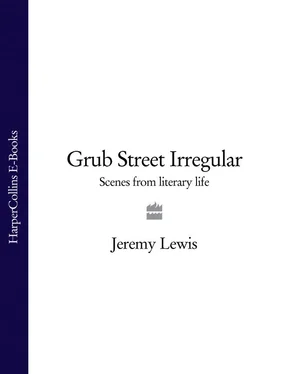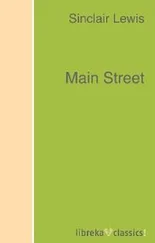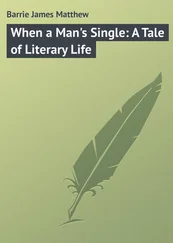My literary ambitions as a child were equally modest, and easily satisfied: so much so that when I read about writers who have scribbled incessantly since they could first hold a pen, and are never happy except when seated behind their desks, I know myself to be a fake, or the literary equivalent of a Sunday painter, a dabbler who would probably never write another word if suddenly endowed with a large private income. Like thousands of my contemporaries, I was adept at knocking out jocular imitations of Belloc’s Cautionary Verses ; like thousands more, I edited miniature newspapers, made by folding sheets of blank white paper again and again until it became impossible to bend them any more, and then filling the inch-high pages with tiny writing and drawings of pin men in action, arranged in columnar form. When I was at prep school I wrote, but soon discontinued, a story about two Romans, named – unwittingly, and to my parents’ amusement – Testiculus and Constipides; I don’t remember writing a word at my public school, and it was only when I went to Trinity College, Dublin, in the early 1960s that I began, very tentatively, to write poems and articles for the college magazines, two of which I eventually edited.
A few years later I took to reading my handful of poems out loud in London pubs, once in tandem with Jon Stallworthy; but I knew myself to be a hopeless dilettante, and soon abandoned both writing and performing. Despite my propensity for embellishing the truth, I have never had any desire to write fiction. When, in due course, I found myself poring over Cyril Connolly’s abortive attempts to write novels and short stories, and noted how this most eloquent of autobiographical writers became wooden and self-conscious in the process, I recognised, once again, a kindred spirit. (Connolly longed to be a novelist like Evelyn Waugh, but The Rock Pool , his only completed novel, is wretchedly stiff and unconvincing.)
When I left university I thought, in some vague way, that I might become a writer, but it never occurred to me that the only way to do so was to put pen to paper. I liked the idea of being a writer, but my approach was entirely passive: I assumed that, rather like the truths of Christianity or the existence of God, all would be revealed if I waited long enough. I never gave a moment’s thought to becoming a lawyer or an accountant, or going into business of any kind: partly because I suspected, rightly, that I would be no good at such things, lacking as I did both team spirit and the competitive urge, and partly from an arrogant and unjustified sense that I was cut out for better things. Had I done so, and had I survived the course, I would now be looking forward to an easy retirement and a reasonable pension rather than worrying where and how I can earn the next penny. But if my life has been short on both incident and material rewards – writers’ lives are famously dull affairs, and for the most part badly paid – at least it has been a continuum: editing and writing for the magazines at university had given me a taste for Grub Street existence, and I have gone on doing much the same ever since. But forty years ago, when I started out on the literary life, I had no idea where I was going, or what I wanted to achieve.
Cyril Connolly was always fascinated by the ways in which writers scraped a living. Shortly after the end of the war he sent a questionnaire to various eminent authors asking them what jobs or means of earning money were most compatible with the literary life, and published their answers in Horizon . Connolly himself recommended a rich wife; a common ideal among his less worldly contributors was a job, preferably manual, which wasn’t too exhausting, left the mind free, and didn’t compete with the business of writing. Wood-turning and vegetable-growing were among those mentioned by his correspondents. None suggested a job in publishing, so confirming Connolly’s own belief that the enemy of promise was not so much the pram in the hall as work in what he termed ‘cultural diffusion’ – publishing, journalism, broadcasting, the British Council and other agreeable, convivial and literate activities which brought one into contact with writers and the literary world, and could all too easily become a substitute for writing itself.
Despite such warnings, publishing houses inevitably include among their staff an above-average number of would-be writers, part-time writers and writers manqués . Every now and then one of them moves to the other side of the desk, and becomes a full-time writer. Most of them, no doubt, had gone into publishing for reasons which Cyril Connolly would have found deeply suspect. For my part, I assumed that all publishers were rather like the late Colin Haycraft of Duckworth – bespectacled, articulate, immensely well-read characters with double firsts from Oxford and a good line in corduroy jackets and colourful bow-ties – and that the life of a publisher’s editor (for such I assumed I would be) consisted of a little light editing in the morning, an afternoon spent reading the typescript of some new masterpiece, and the early evening given over to dry sherry and waggish repartee with eminent authors.
I eventually landed a very junior job in the publicity department at Collins, and I soon realised how misconceived my notions had been. There were plenty of literate, well-read individuals working there as editors, Philip Ziegler and Richard Ollard among them, but the salesmen ruled the roost; and although the formidable boss, Billy Collins, was a product of Harrow and Magdalen, he was, I’m sure, far happier haranguing the reps or moving Collins titles to the front of the pile in bookshops than discussing new trends in poetry with John Lehmann or lit. crit. with F.R. Leavis. The best publishers, I soon realised, were neither literary nor academic, but were an intriguing and forceful combination of the businessman and the impresario. Although the period between the wars had seen the rise of the gentleman publisher who went into the business after public school and Oxbridge – some as members of publishing dynasties, like Billy Collins or Jock Murray, others as new arrivals, like Rupert Hart-Davis, Hamish Hamilton, Fredric Warburg or Ian Parsons of Chatto – the traditional publisher had tended to come from a lower-middle-class, non-conformist, rather Wellsian background, starting from the bottom after leaving school and learning every aspect of the trade as he worked his way up. Stanley Unwin and Allen Lane had begun in this way; and many of those who dominated the trade in my youth – Tom Maschler, Tony Godwin, Paul Hamlyn, Charles Pick of Heinemann – had followed in their footsteps, with both Godwin and Hamlyn selling books off barrows in their early days.
From Collins I moved on to André Deutsch, where more salutary lessons were learned. Like all the best publishers, Deutsch himself was shrewd, quick-witted and parsimonious, adept at picking other people’s brains and possessed of an almost intuitive ‘nose’ or ‘hunch’ for a book or an author, and an equally strong sense of what books would or would not suit his list. The literary side of publishing – reading and assessing works offered to the firm, and then knocking them into shape – he could safely leave to Diana Athill in particular; and it formed only part of his job, competing for his time with the demands of printers, binders, papermakers, literary agents, booksellers, wholesalers, librarians, libel lawyers and literary editors. He was workaholic, monomaniacal and possessed of just the right amount of tunnel vision – all qualities that distinguish the publisher proper from the mere editor.
The great publisher has to have something of the actor about him, able to simulate (and yet at the same time genuinely feel, if for an instant only) overpowering enthusiasm, excitement, rage and disappointment, as the occasion demands. ‘This is the most amazing book I have taken on in my entire publishing career,’ he will declare à propos a particular favourite on that season’s list, and he will believe it for the next six months at least; he will become almost apoplectic about some modish new novel on offer to the firm, and prophesy doom and destruction if he fails to take it on, but it will be instantly forgotten if it goes to another publisher – unless, of course, it proves to be a disaster in terms of sales, in which case a degree of schadenfreude and retrospective wisdom may be in order. What made Tom Maschler the most brilliant publisher of our time, apart from stylishness, charisma and a feeling for the spirit of the age, was his ability to persuade his colleagues, and then his salesmen, and then the world at large, that all his geese were swans, and that Cape books were synonymous with both excitement and distinction.
Читать дальше












